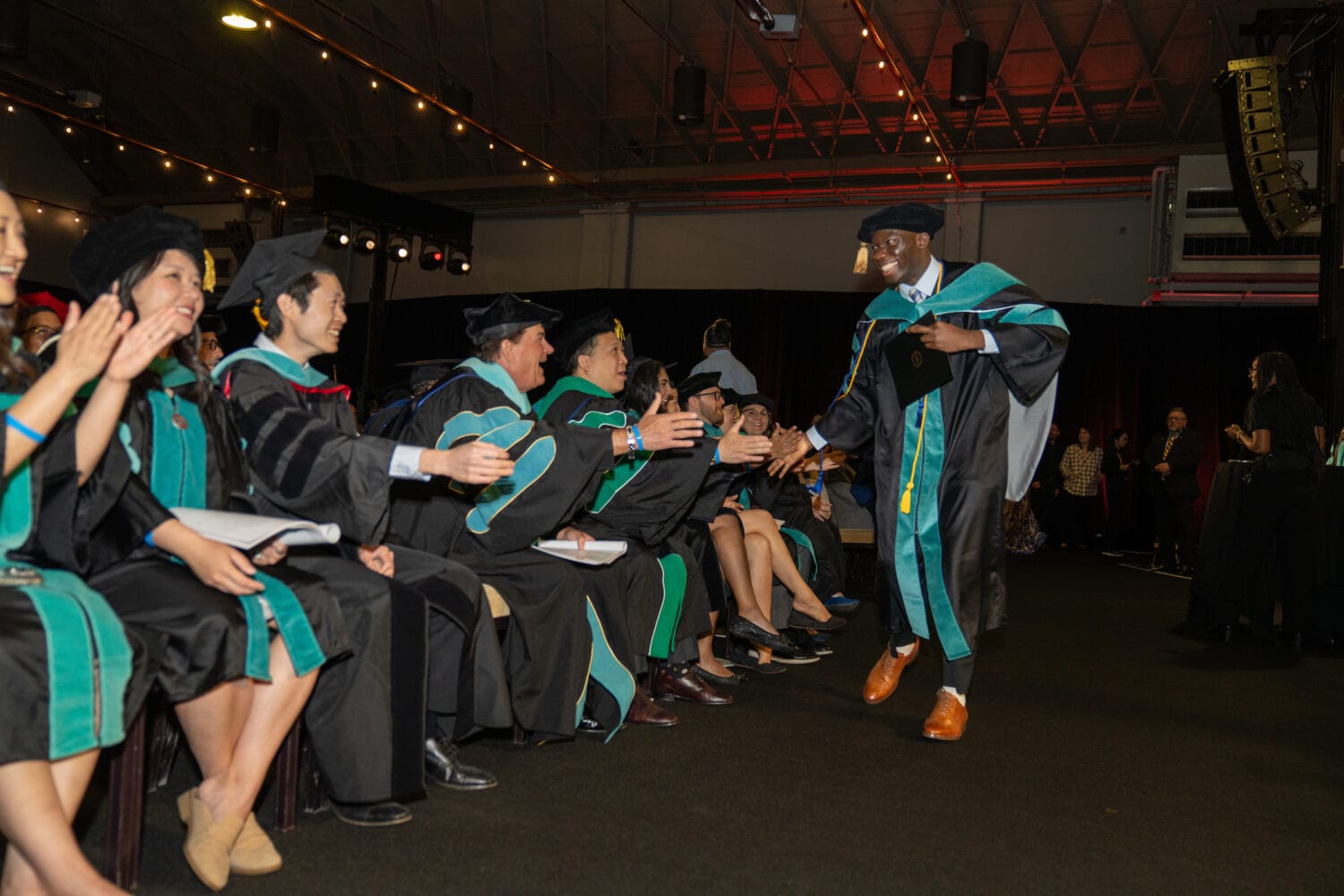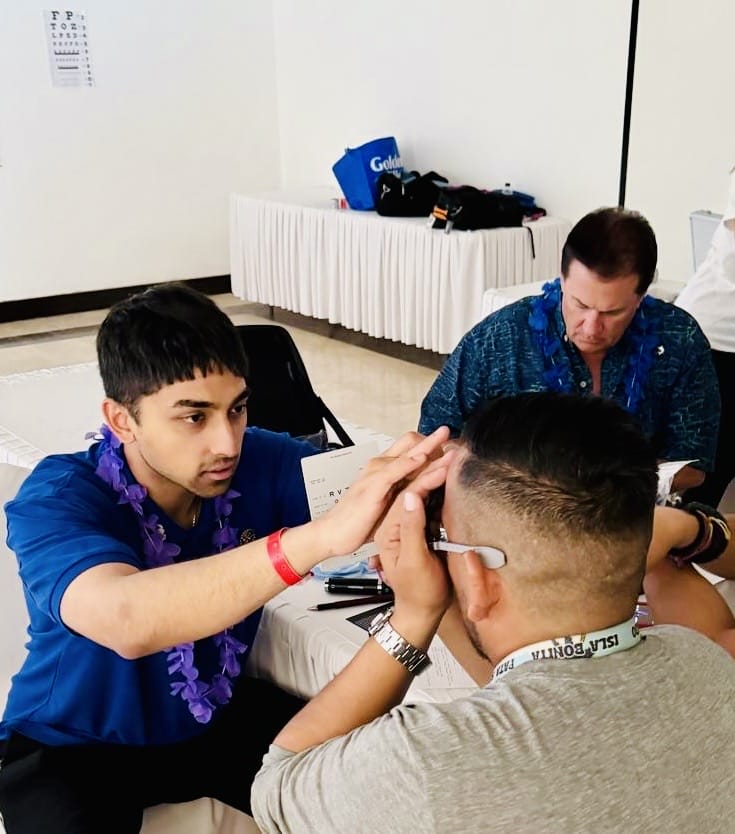College of Optometry Pioneer to Retire
Charles Haine, OD, MS, drew on a lifetime of experience for his role as College of Optometry Associate Dean of Clinical Affairs.
Dr. Haine, 68, is set to retire at the end of June after 40 years in the profession. He leaves behind a lasting legacy in the students he taught and the colleagues he influenced.
Dr. Haine was instrumental in the architectural design of Western University of Health Sciences’ Health Education Center and Patient Care Center, especially in how the Eye Care Center was laid out, said College of Optometry Founding Dean Elizabeth Hoppe, OD, MPH, DrPH.
“Anything you see in the Eye Care Center has his fingerprint somewhere. The hiring of every employee, the flow of the patient care experience, he did it all,” Dean Hoppe said. “Out of all the people on our college team, he was the one with the biggest picture of ‘this is the way eye care will be in the future.’ ”
Dr. Haine said he is able to envision how things will operate before the pieces are in place. The center is designed to expose students to the broadest possible clinical experience.
“As you age, you gain experience. You see what works and what doesn’t work,” he said. “I couldn’t do this when I was 30. There is some benefit to having gray.”
Dr. Haine came to the College of Optometry in January 2008, the fourth overall hire for the new school. He decided to make the leap because of the opportunity to build a new clinical facility that embraced interprofessional education and focused on neuro-optometry.
“I spent 27 years working in a VA (Department of Veterans Affairs) hospital. I saw interdisciplinary care work there,” he said. “I know how much better it was for the patient.”
He first became interested in optometry while serving as a Hospital Corpsman in the U.S. Navy, when he learned about vision testing from an optometrist. He earned his Doctor of Optometry degree from Indiana University in 1974.
At the time, optometry was for the most part a drugless profession. Since then, optometrists have started treating ocular surface diseases and glaucoma, along with serving as vision experts, Dr. Haine said. Technology has really changed through the years.
“We can now look at separate layers of the retina with technology that was not available to us as late as the 1990s,” he said. “A lot has changed, but it’s still a great profession. The problem-solving you do every day in patient care is probably the most challenging part of it, and the most fun.”
The profession has some “urgencies” but not many emergencies, which allows you to have a family life as well as being challenged, Dr. Haine said. You also have opportunities to truly impact your patients’ lives by doing things like correcting blurred vision.
“To clear that up so they see things clearly again, there’s a lot of satisfaction in doing it right,” he said. “It’s unbelievable.”
Dr. Haine built a solid foundation for the college to build on, Dean Hoppe said.
“We’re going to take that foundation to the next step in the delivery of care and growth of the patient base,” she said.
Dr. Haine is respected and well known throughout the country, said Rob Drescher, OD, MS, FAAO, College of Optometry Director of Clinical Education, who also worked for Dr. Haine at the Southern College of Optometry in Memphis.
“Dr. Haine is a visionary person. He can see the future direction optometry is taking.” Dr. Drescher said. “He knows almost everybody in optometry. No matter where I go, people tell me, ‘Say hi to Dr. Haine.’”
Dr. Haine and his wife, Connie, will move to Salem, Mass., to be closer to their daughter, Merritt. They will actively pursue their love of genealogy and will continue to volunteer with the Optometric Residency Matching Service, which Dr. Haine started in 1984 with Tom Stelmack, OD, and Tim Messer, OD.
“It’s a labor of love,” he said. “Residency education is important. It makes a better clinician for life. It really changes somebody when they do it.”
Dr. Haine and his wife are also leaving a lasting legacy through the Hays-Haine Endowed Family Scholarship fund at WesternU, established to assist students from underserved areas who may need financial help to reach their dreams of serving their communities as a doctor of optometry.
“You have to give back, or the profession dies,” Dr. Haine said. “I think it’s everyone’s responsibility to give back. You should be an active participant. The scholarship is just part of that.”
His words of advice for future optometrists?
“You have to take care of the patient. You need to take care of your family and then you need to think about your community, whether it’s the optometry profession or the community you live in,” Dr. Haine said. “If you build your life that way, you’ll be rewarded in the end.”



